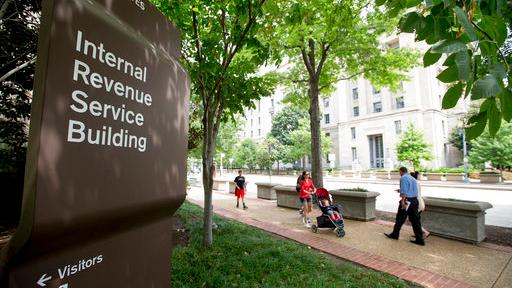New York, high-tax states dealt SALT cap blow in court, but fight likely not over
New York and New Jersey were among a group of high-tax states that received a setback in their bid to challenge Republicans’ $10,000 cap on state and local tax deductions, but they are unlikely to give up the fight.
A judge in Manhattan on Monday dismissed a lawsuit filed by four blue states, saying that they failed to demonstrate Congress exceeded its taxing authority by implementing the provision.
In a statement responding to the lawsuit, Gov. Andrew Cuomo, of New York, said he disagrees with the court’s decision and is evaluating aoptions including an appeal.
"The bottom line is this policy is unprecedented, unlawful, punitive and politically motivated — and it must be stopped,” Cuomo said in a statement.
New York Attorney General Letitia James said her office was considering all of its options, as well.
Joe Pizzimenti, a tax director specializing in state and local tax services at Margolin, Winer & Evens, told FOX Business he would be surprised if New York, New Jersey, Connecticut and Maryland let the court’s decision end their quest to have the cap lifted.
“I would be surprised if they don’t go up the federal court system and perhaps even after that if they lose,” Pizzimenti said.
Pizzimenti, who anticipated the court’s ruling, said he believes this issue has a better chance of being resolved through legislative action, not judicial.
The four states sued the Treasury Department in July 2018. The government had asked for the suit to be dismissed.
Earlier this year, the IRS officially struck down a strategy of classifying property tax payments as charitable donations to help residents evade the SALT cap. There is legislation floating around Capitol Hill to undo the provision, however, it is unlikely to pass while Republicans retain control in the Senate.
Meanwhile, as previously reported by FOX Business, the provision of the Republican tax law is one the administration is hoping to extend past 2025 – when it is currently set to expire. A potential extension would be part of a Tax Cuts 2.0 package that White House National Economic Council Director Larry Kudlow said the administration is aiming to put out around the middle of next year.
Trump has slammed high-tax states, particularly New York, over its tax laws – saying they are causing people and businesses to flee the state in “record numbers.” U.S. Treasury Secretary Steven Mnuchin said in Nov. 2017 that he hoped changes to the SALT deduction would send a message to state governments to “get their budgets in line,” questioning why they needed state taxes as high as 13 percent.
The cap has caused an exodus of residents from high-tax states to states with lower or no statewide taxes. The average SALT deduction claimed in California is $22,000, according to Kevin de Leon, a Democratic member of the California Senate.
Florida received more movers than any other state last year, New York's outflows to the Sunshine State were the highest – 63,772 people. New York had the third-largest outflows of any state, with 452,580 people moving out within the past year.
New York’s Democratic Gov. Andrew Cuomo has said he expects the cap on state and local tax deductions to have a negative impact on the state’s population – and tax receipts. He blamed a $2.3 billion budget deficit on the new tax law, calling the state’s financial situation “as serious as a heart attack” as wealthy residents leave.
Meanwhile, the exodus from high-tax states may continue to heat up. Many experts told FOX Business they saw a spike in inquiries about establishing a new domicile during tax season, when taxpayers began to see the financial repercussions before their eyes.
The financial benefits of moving from a high-tax state to a low-tax state can be substantial. Individuals earning $650,000 can save more than $69,700 in taxes per year by moving from New York to the Sunshine State.




















